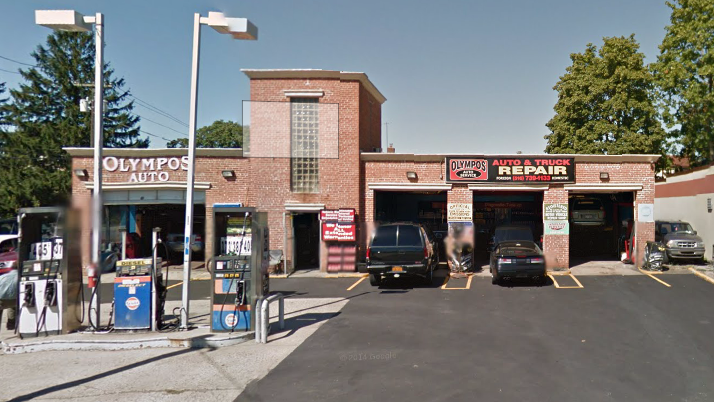
The Village of Mineola plans to appeal an appellate court’s ruling to overturn a lower court decision that the village acted within its rights to deny 7-Eleven’s bid to open a store on Jericho Turnpike, Mayor Scott Strauss announced Wednesday.
The Appellate Division of the Second Judicial Department determined the village’s denial of the application to be “arbitrary and capricious” and that the board failed to counter 7-Eleven’s expert testimony saying the store would have no adverse effect on traffic. A lower court in 2012 upheld the village’s decision as “specific, detailed and rational.”
“Unfortunately we were overturned in the Court of Appeals,” Strauss said. “I’m sure the rest of the board feels as strongly as I do to make a motion to appeal to the New York State Board of Appeals. Maybe we’ll get a more favorable decision from them.”
The Mineola board unanimously rejected the proposed store at 400 Jericho Turnpike in March 2012 saying that its location and limited curb cuts could pose as a traffic and parking hazard, contradicting the claims of a traffic engineer hired by 7-Eleven.
“I stand behind our [original] decision and behind the rationale for our decision,” Deputy Mayor Paul Pereira said at the village’s Board of Trustees meeting Wednesday.
Acceptance of the appeal is not guaranteed.
The village must first demonstrate that it is seeking the court to clarify a “novel question” with broader implications — in this case whether a board can counter expert testimony based on its own empirical observations, village Attorney John Gibbons said.
“If a traffic expert comes in and tells you there’s no traffic problem at Old Country Road on a Tuesday, you [would] have to accept that even though you know you can’t get five blocks in under 20 minutes,” Gibbons said. “Is a municipal board required to retain their own expert to counter the argument of the applicants’ expert?”
“That would be the very limited issue I will be arguing, is convincing the court I have a narrowly tailored question that needs to be answered,” he said.
7-Eleven’s attorneys did not respond to an email asking for comment.
The crux of the appellate court’s decision to overturn hung on the distinction between a special-use permit — which 7-Eleven requested to serve food — and a variance, which makes zoning changes to the property.
The appellate court said the “burden of proof on an owner seeking a special exception is lighter than on an owner seeking a [use variance].” In the court’s mind, the village provided insufficient evidence to counter the 7-Eleven expert and demonstrate the store would generate more traffic than any “as-of-right” development.
The court’s “arbitrary and capricious” ruling may have been bolstered by comments at a public hearing on the proposal where residents overwhelmingly opposed the project, citing traffic concerns and fears that alcohol sales and late-night noise could decrease property values. Board members made similar comments.
The appellate court said he remarks were “unsupported.”
Testimony with general objections “doesn’t really help us because then a court starts to get the idea the board is basing their decision on pressure from their constituents,” Gibbons said. “If you have enough of them, sometimes courts scratch their head and say I haven’t heard any good reasons all I hear are these generalized objections — ‘not-in-my-backyard’ type things.”
In Mineola’s official denial of 7-Eleven’s application, the village made no mention of property values in its reasoning and focused solely on traffic.
Mineola won a similar case last year when a court denied the appeal of a day-care center whose application for a special-use permit was rejected by the Board of Trustees due to traffic concerns. In that decision, a court ruled a board could base its decision upon “its members’ personal knowledge and familiarity with the community.”
Mineola’s village code says that the applicant is responsible to pay if the village decides to hire its own expert, though not all Long Island municipalities have a similar provision, Gibbons said.
The 7-Eleven case would “tell the municipalities what they need to do and if they need” the provision, Gibbons said. “God knows taxpayers don’t want to be paying for it.






